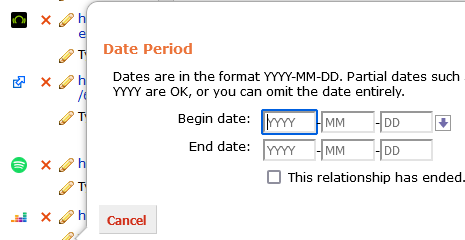I’m in line with @rdswift proposals considering the current system. It was designed to represent Physical releases and Digital world creates new/transforms/exacerbates the problematics to handle (see NB). As of now we are trying to fit “Digital releases” as we can into MBz, even by altering the initial logical/behavior behind the fields which is far from accurate to preserve those data.
For instance:
- Country differences among stores. As said upper Bandcamp being WW whereas there will be restrictions on Spotify (ex: “Paradise Bangkok: The Album, Vol. 2”)
- Similarly some releases won’t be available on all plaforms and/or not added on same date (ex: “Les Forêts natales” being in Spotify/Deezer but not iTunes)
- Removed releases/Excluded countries: This was added only recently to MBz and not by deleting the release event (see Announcement: New release statuses "Cancelled" and "Withdrawn" and ex: Body Count album due to Cop Killer song)
- Those limitations can also happen on track level
- a-tisket don’t cover all platforms (ex: Qobuz, Beatport, HdTracks, Tidal, Bandcamp, Junodownload, Amazon,…)
- It’s almost impossible to get access to all of those informations, especially in the past (ex: Hard to list all the release removals & reissues from HDTracks)
So having release Events to show WW (or Internet) and first date available is indeed not perfect but at least not wrong: In most cases files are the same among the different countries and even there are restrictions those can be easily bypassed. We could assume that today’s releases were made having this in mind (for instance release day was changed due to those issues Global Release Day - Wikipedia) and the availability dates can be set directly on the link then (for now) dedicated/excluded countries/labels go in annotation.
then (for now) dedicated/excluded countries/labels go in annotation.
Oh and as we are speaking about release events, could we set a minimum date to Digital Media (at least 1990)? With platforms showing the intial release dates we see more and more WEB releases from 70’s, 60’s,…
NB: I remember those topics are being discussed for many years Digital releases - #75 by thwaller) but no clear answer or update to guidelines ex: What should be considered a different release for Digital: tracklisting, barcode, format (24bit, mp3,…), platform, download/streaming, label…? (seems the consencus is around tracklisting and Barcode to avoid multiplying the entities but there are cases where the platform and/or format have made splitted ones); Which data do we want to store: Only related to music or also ones coming from platforms/stores (ex: Track credits vary depending of stores and can change in time, “Fake” releases which look more playlists, Do we consider Streaming as radio or as release,…)); …
Those are not trivial as they can have an important impact on system. ex: it seems we want to reflect the evolution in time but this concept exists only on the relationship level as of now (begin/end dates). Other fields and functions are designed to reflect a “picture” at the initial release time (which is normal with the constraint of physical ![]() ).
).